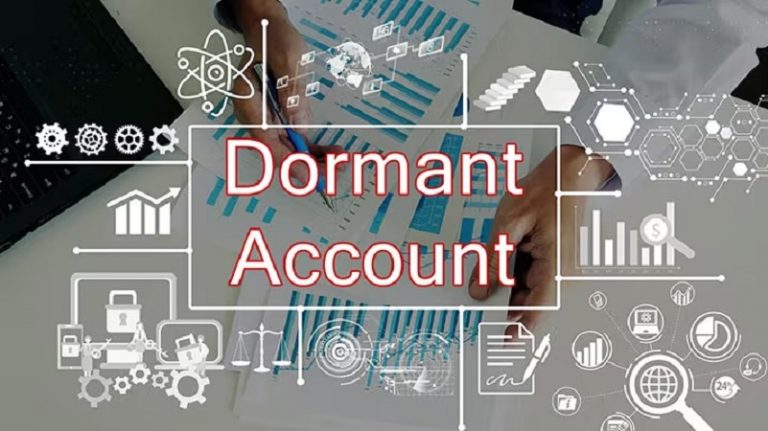
The Central Bank of Nigeria (CBN) in April 2023 released the Guidelines on Dormant Accounts & Unclaimed Balances as a follow-up to guidelines earlier issued on October 7, 2015 to curb abuses in the operation of dormant & inactive accounts to set regulatory standards.
This article will be looking at the provisions of these new guidelines, with a focus on :-
– Their scope.
Register for Tekedia Mini-MBA edition 19 (Feb 9 – May 2, 2026): big discounts for early bird.
Tekedia AI in Business Masterclass opens registrations.
Join Tekedia Capital Syndicate and co-invest in great global startups.
Register for Tekedia AI Lab: From Technical Design to Deployment (next edition begins Jan 24 2026).
– Their objectives.
– Stakeholder roles and responsibilities.
– Dormant account reactivation.
– Compliance requirements.
What is the applicability scope of the guidelines?
The guidelines apply to :-
– All Financial Institutions under the licensing and regulatory jurisdiction of the CBN.
What are the eligibility requirements for classifying an account as dormant?
Dormant Accounts include :-
– Account balances that have remained with an FI for a period of 10 years and above.
Assets that can also fall under the dormancy categorization include :-
– Current, savings and term deposits in local currency.
– Domiciliary accounts.
– Deposits towards the purchase of shares & mutual investments.
– Prepaid card accounts and wallets.
– Proceeds of uncleared & unpresented financial instruments belonging to customers & non-customers of FIs.
– Uncleared salaries, wages, bonuses and commissions.
– A judgment debt for which the judgment creditor has not claimed the judgment award sum.
What type of accounts and financial assets are exempted from the jurisdiction of the guidelines even though they are dormant?
Accounts and assets that would fall under this exemption category include :-
– Government-owned accounts.
– Accounts that are the subject of litigation.
– Accounts under investigation by a regulatory body or law enforcement agency.
– Encumbered accounts including but not limited to collaterals and liens.
What are the objectives of the guidelines?
The objectives of the guidelines are :-
- To identify dormant account/uncleared balances and financial assets with a view to reuniting them with their beneficial owners.
- To hold the funds in trust for beneficiaries.
- To standardize the management of dormant accounts.
- To establish a standard procedure for the reclamation of warehoused funds.
Which parties are regarded as stakeholders for the purposes of the guidelines and what are their prescribed roles and responsibilities?
The stakeholders identified by the guidelines along with their roles and responsibilities are :-
- The Central Bank of Nigeria
Roles & Responsibilities
– To open and maintain an account earmarked for the purpose of warehousing unclaimed balances in eligible accounts. The account shall be called the “Unclaimed Balances Trust Fund Pool Account” or UBTF Account.
– Establishing a management committee to oversee the operation of the UBTF pool account.
– To monitor and enforce compliance with the guidelines.
– To manage dormant and unclaimed funds in line with the Banks and Other Financial Institutions Act (BOFIA) 2020.
– To resolve escalated complaints relating to the reclaim of warehoused funds.
- Financial Institutions (FIs).
Roles & Responsibilities
– To monitor inactive accounts & notify the customers as well as protect such accounts from unauthorized usage.
– To establish procedures that will ensure continuous contact with customers to reduce the incidence of inactive and dormant accounts.
– To maintain records of procedures and periodic efforts to contact customers with inactive accounts.
– To advise customers in writing on the need to communicate changes in their names, addresses, numbers, email addresses and next-of-kin details or particulars of directors, authorized signatories & business addresses in the case of corporate entities.
- Account Holders/Beneficiaries of other financial assets
Roles and Responsibilities
– To inform FIs of changes in their names, addresses, phone numbers, email addresses, next of kin details and in the case of corporate entities, their directors, authorized signatories, business addresses and any other customer information update.
– To submit applications for reclaim to FIs.
– To provide appropriate information and proof of ownership for the reclaim of balances transferred to the CBN.
What are the provisions of the guidelines on dormant account reactivation?
For reactivation of dormant accounts and the reclamation of unclaimed balances, FIs and customers shall respectively :-
FIs
– Require the account owner to complete a reactivation form in person.
– Verify the information provided in the reactivation form.
– Not charge any fee for the reactivation of dormant accounts.
– Reactivate the dormant account with the approval of 2 authorized officers of the FI with one being at least the branch operations manager.
Customers/Beneficial Owners
– The beneficial owners can access the list of unclaimed balances transferred to the CBN via the CBN/FI’s website or newspapers.
– The beneficial owners shall visit any branch or office of the FIs to complete an asset reclaim form.
– The FIs shall verify the claim and initiate the request to the CBN within 10 working days.
– Beneficial owners shall not make partial claims.
– For FIs in liquidation, the Nigerian Deposit Insurance Corporation (NDIC) shall assume the role of the FI.
Who has the major responsibility of ensuring full compliance with the guidelines?
Ensuring full compliance with the guidelines is the responsibility of the heads of compliance in all FIs.
What are the provisions of the guidelines on Dispute Resolution?
The guidelines state that customer complaints should first be lodged with FIs for resolution & redress within a maximum period of 15 working days.
What are the applicable sanctions prescribed for non-compliance with its provisions by the guidelines?
The guidelines prescribe a flat punitive fine of 2 Million Naira for violation of its provisions and then a daily fee of 20 Thousand Naira for further infractions.



